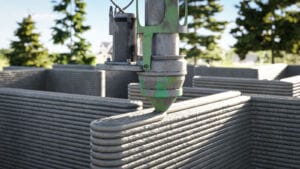During a recent interview on the local tech startup community, I was asked to list the features of a vibrant startup ecosystem. I ticked off the standard items like access to capital, research universities, smart people, support, and a positive regulatory and tax environment. But I felt like something was missing. Later that week, I met some other seasoned business owners and we started talking about the large corporations we came from. That was the missing piece. Lightbulb over head: Strong and highly technical large companies are critical to a startup ecosystem, and especially for hardware startups.
Although it makes for a great story, not a lot of entrepreneurs I’ve met go directly from school into launching new companies. They usually gain experience and build their network at a large firm. This was reinforced while I was reading applications for the 2016 Venture Madness competition. Many of the strong entries list a major employer when they describe their key team member’s background.
The three of us who co-own PADT actually developed our technical expertise while working at Honeywell Aerospace, a division that started as Garrett Turbine Engines. We also learned how to work in teams, manage projects, and interact with vendors. Equally important is the network we developed. Almost twenty-two years later and many of the people we do business with and experts we get advice from are people we met while designing, simulating, and prototyping turbine engines. Many of our successful customers can trace their heritage to Motorola and its descendants. Medtronic and TGen have contributed many of the key entrepreneurs to the Arizona biotech space. Intel, Raytheon, IBM, ASM America, and many others also play critical roles. Even if the startup founders didn’t come from a large tech company, many of their key employees did.
And don’t forget that money part. Many of the state’s investors obtained their capital from working at large corporations. Those companies are often the biggest customers, and eventual acquirers of startups. The taxes they and their employees pay fund our education system and government support for startups.
Those of us who are dedicated to strengthening the startup ecosystem in the state should be mindful of the roll big tech plays. The relationship is symbiotic because the big firms in turn get technology and talented employees from startups. And that success increases income and tax revenue in the state, benefitting everyone.
Startups are cool these days. There is no HBO show called “Electrodyne: The Corporation.” Even without a hit TV show, big tech is still important. We should all remember that and work to attract and keep large technology employers, make it easier for them to spin off tech as small companies, and encourage them to participate in the startup community. It takes the big and the small to build a strong technology business ecosystem.
Want to hear about what’s going on in Arizona’s technology industry? A panel of experts will be talking aerospace and more on Oct. 5 at the HEAT Forum.




